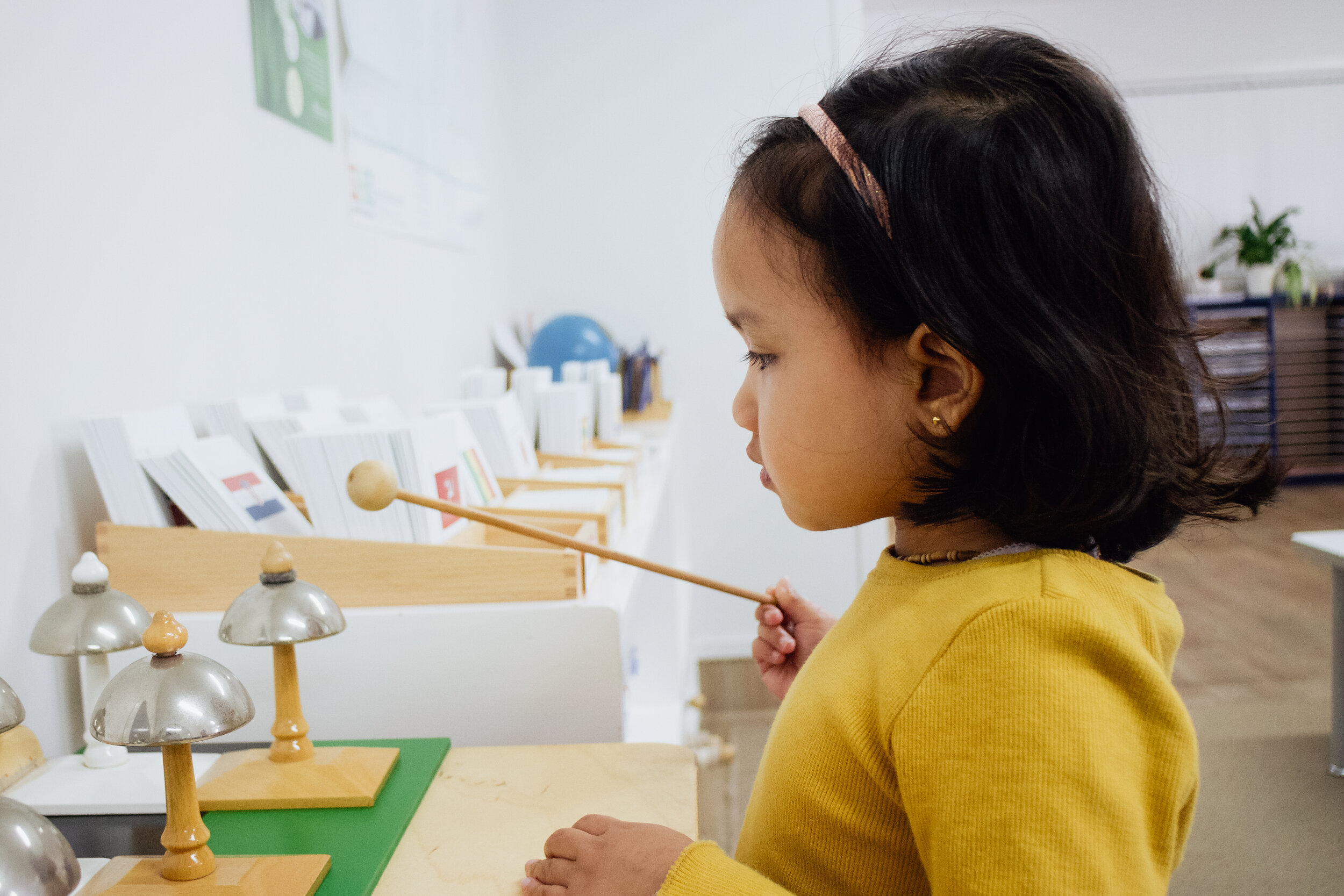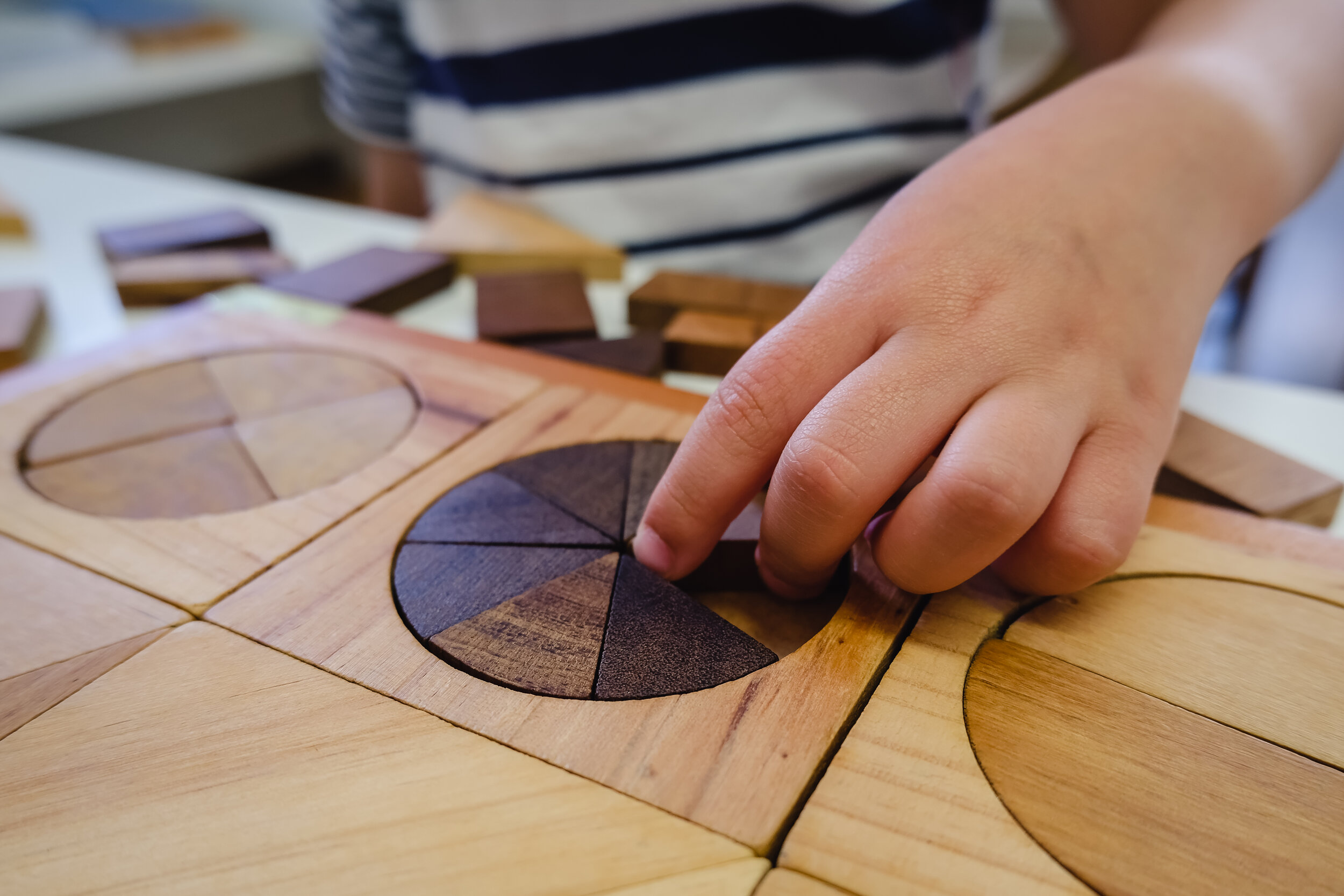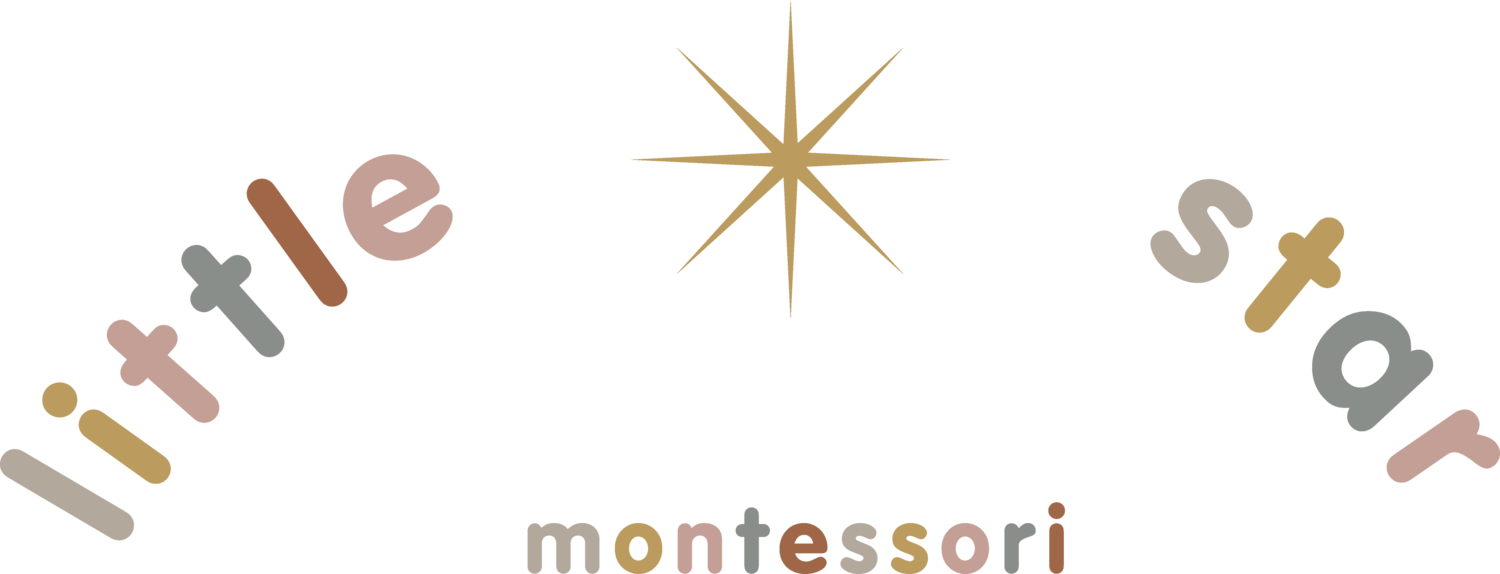Our Montessori classroom
Our classroom is organized to facilitate maximum development of your child's potential. The mixed aged group of 2 to 6 years provides a family–like grouping where learning takes place naturally. More experienced children share what they have learned while reinforcing their own learning. Younger children get to observe the older children work with a variety of activities and are exposed to what comes next in the activity. The aim is to encourage active self-directed learning where children are able to repeatedly go back to practice activities that has been shown to them, in order to master their individual skills and also to set new learning goals.
Our children also take an active role in maintaining the classroom by putting materials away in their proper places, ready for the next child to use. It is important that children feel competent to be able to find materials independently in the environment.
Our trained Montessori teachers observe each child's interest and developing skills. They plan and implement an individualised programme that allows each child to actively engage in learning and develop cognitively, socially, emotionally and physically.

“The greatest gifts we can give our children are the roots of responsibility and the wings of independence”
— Maria Montessori
Our Montessori prepared environment
A prepared Montessori environment is a key element of the children's learning. All the furniture is tailor-made to child-size, materials are within reach and arranged in a logical sequence on low shelves to foster children's independence, self regulation, self-motivation and self-esteem.
Dr. Maria Montessori observed that children learn by doing and so she prepared activities to engage the children in learning specific skills. Our Montessori classroom consists of a variety of developmentally appropriate materials organised into curriculum areas such as Exercises of Practical Life, Sensorial, Language, Mathematics, Cultural Studies, Art, Music and Movement.
When you visit our classroom you will observe some "significant" behaviour. You will notice that our children are concentrating, working peacefully and independently at their tasks. You will see that they treat each other with respect, showing consideration, kindness and valuing each other's work and space. It is a place where they learn about responsibilities such as taking care of the environment, looking after themselves as well as the welfare of others, and establish acceptable social relationships.
Montessori education is unique because...
The holistic Montessori programme promotes the development of self-esteem, social skills, emotional growth and physical coordination as well as cognitive preparation. The Montessori method recognises that children learn best by doing what they have been shown how to do. This hands-on approach helps children develop both their cognitive skills and physical dexterity. It also teaches them to respect each other and cultivate positive relationships with children of different ages and cultural backgrounds.
A love of learning…
Montessori education is often described as an ‘education for life.’ The focus is on the child, and a carefully prepared environment designed to facilitate the development of children’s independence and a sense of empowerment. The Montessori environment enables the children to learn a vast array of skills but the greatest achievement is the love of learning that equips them to become independent, capable and successful learners.

Little Star Montessori aspires to develop a child’s full potential within a prepared Montessori environment, rich with learning opportunities to empower the child to be socially, intellectually, emotionally and physically competent, confident and successful life long learners.
Education Review Office (ERO)
ERO’s overarching question for an early childhood education review is ‘How well placed is this service to promote positive learning outcomes for children?’ ERO focuses on the following factors as described in the bicultural framework Ngā Pou Here:
Pou Whakahaere – how the service determines its vision, philosophy and direction to ensure positive outcomes for children
Pou Ārahi – how leadership is enacted to enhance positive outcomes for children
Mātauranga – whose knowledge is valued and how the curriculum is designed to achieve positive outcomes for children
Tikanga whakaako – how approaches to teaching and learning respond to diversity and support positive outcomes for children.
Within these areas ERO considers the effectiveness of arotake – self review and of whanaungatanga – partnerships with parents and whānau.
“All children are intrinsically motivated to learn and they absorb knowledge without effort when provided with the right kind of activities at the right time in their development”
— Maria Montessori


